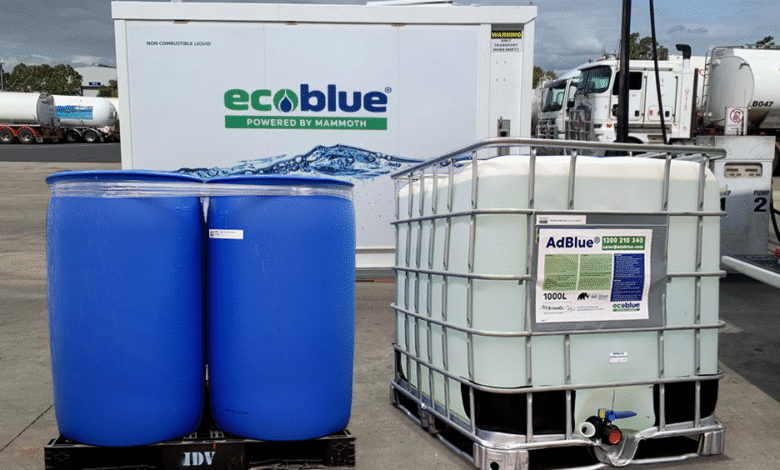How to safely store AdBlue for commercial transport fleets

AdBlue has become an essential component in meeting emission standards across the UK’s commercial transport sector. Used in vehicles equipped with SCR (Selective Catalytic Reduction) systems, AdBlue helps reduce nitrogen oxide emissions and comply with Euro VI standards. For companies managing multiple vehicles, ensuring a safe and efficient method of storing this fluid is critical. Without proper storage, the quality and effectiveness of AdBlue can quickly deteriorate, leading to costly vehicle maintenance and non-compliance penalties. This makes the selection and use of purpose-built AdBlue storage tanks a vital part of any fleet operation.
AdBlue has become an essential component in meeting emission standards across the UK’s commercial transport sector. Used in vehicles equipped with SCR (Selective Catalytic Reduction) systems, AdBlue helps reduce nitrogen oxide emissions and comply with Euro VI standards. For companies managing multiple vehicles, ensuring a safe and efficient method of storing this fluid is critical. Without proper storage, the quality and effectiveness of AdBlue can quickly deteriorate, leading to costly vehicle maintenance and non-compliance penalties. This makes the selection and use of purpose-built AdBlue storage tanks a vital part of any fleet operation.
Selecting the right tank material for long-term reliability
When choosing a storage solution for AdBlue, material selection is key. AdBlue is highly sensitive to contamination and reacts with certain metals, which can compromise its chemical structure. For commercial fleets, steel tanks with additional corrosion protection offer a reliable and durable option. These tanks are coated with specialised linings that shield the steel from contact with the urea-based solution, preventing internal corrosion and preserving the fluid’s purity. Unlike stainless steel, which can be costly and unnecessary for external applications, coated carbon steel combines strength with affordability while meeting all safety and environmental standards.
Protecting AdBlue from temperature fluctuations and sunlight
AdBlue is sensitive to both extreme temperatures and UV exposure, making environmental control essential in British conditions where weather can be highly variable. It begins to degrade above 30°C and freezes at -11°C. To maintain stable quality, AdBlue storage tanks should be installed in shaded or insulated areas, or be equipped with thermal protection systems. In colder months, built-in heating elements or insulation jackets can prevent freezing, while in warmer seasons, shielding from direct sunlight helps avoid premature degradation. These precautions ensure that the AdBlue used in commercial fleets remains effective and compliant year-round.
On-site accessibility and fleet efficiency
For transport companies, time and logistics are central to profitability. Having AdBlue readily available on-site via a dedicated storage system eliminates the need for frequent off-site refills and reliance on retail supply points. Properly located AdBlue storage tanks allow drivers to refill conveniently during routine operations, minimising downtime and improving overall fuel management. Integrating tank dispensing systems with fleet tracking software can also provide accurate usage data, enabling better inventory planning and avoiding supply shortages that could disrupt fleet schedules.
Compliance with UK safety and environmental regulations
In the UK, businesses are required to store AdBlue in accordance with environmental and health safety regulations, especially given its classification as a potentially hazardous substance when mishandled. Tanks must be constructed to prevent leaks, equipped with spill containment features, and designed to allow safe refilling and dispensing. Steel tanks with corrosion-resistant coatings fulfil these requirements by offering a sealed, durable environment. Additionally, companies must ensure that all staff handling AdBlue are trained in proper storage procedures and that routine inspections of the tank systems are performed as part of operational risk management.
Efficient AdBlue storage as part of sustainable fleet operations
Storing AdBlue correctly is not just a regulatory obligation, but also a strategic investment for any transport business focused on sustainability, performance, and cost control. A well-designed steel tank system tailored for commercial use helps preserve fluid quality, safeguards against environmental damage, and supports the seamless operation of vehicle fleets. With the increasing emphasis on reducing emissions in the UK transport industry, maintaining reliable access to high-quality AdBlue through robust storage infrastructure is a practical step toward achieving long-term operational and environmental goals.



